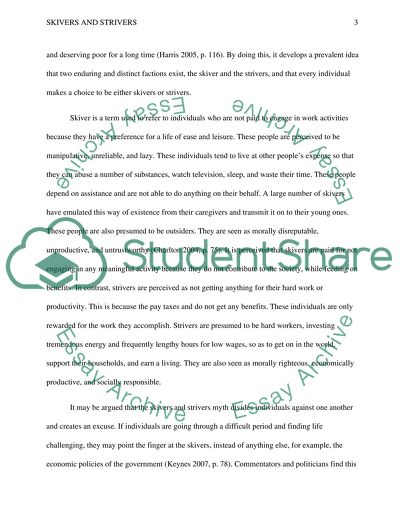Cite this document
(“Assess the argument behind distinguishing 'skivers' and 'strivers' Essay”, n.d.)
Assess the argument behind distinguishing 'skivers' and 'strivers' Essay. Retrieved from https://studentshare.org/sociology/1474537-assess-the-argument-behind-distinguishing-skivers
Assess the argument behind distinguishing 'skivers' and 'strivers' Essay. Retrieved from https://studentshare.org/sociology/1474537-assess-the-argument-behind-distinguishing-skivers
(Assess the Argument Behind Distinguishing 'skivers' and 'Strivers' Essay)
Assess the Argument Behind Distinguishing 'skivers' and 'Strivers' Essay. https://studentshare.org/sociology/1474537-assess-the-argument-behind-distinguishing-skivers.
Assess the Argument Behind Distinguishing 'skivers' and 'Strivers' Essay. https://studentshare.org/sociology/1474537-assess-the-argument-behind-distinguishing-skivers.
“Assess the Argument Behind Distinguishing 'skivers' and 'Strivers' Essay”, n.d. https://studentshare.org/sociology/1474537-assess-the-argument-behind-distinguishing-skivers.


